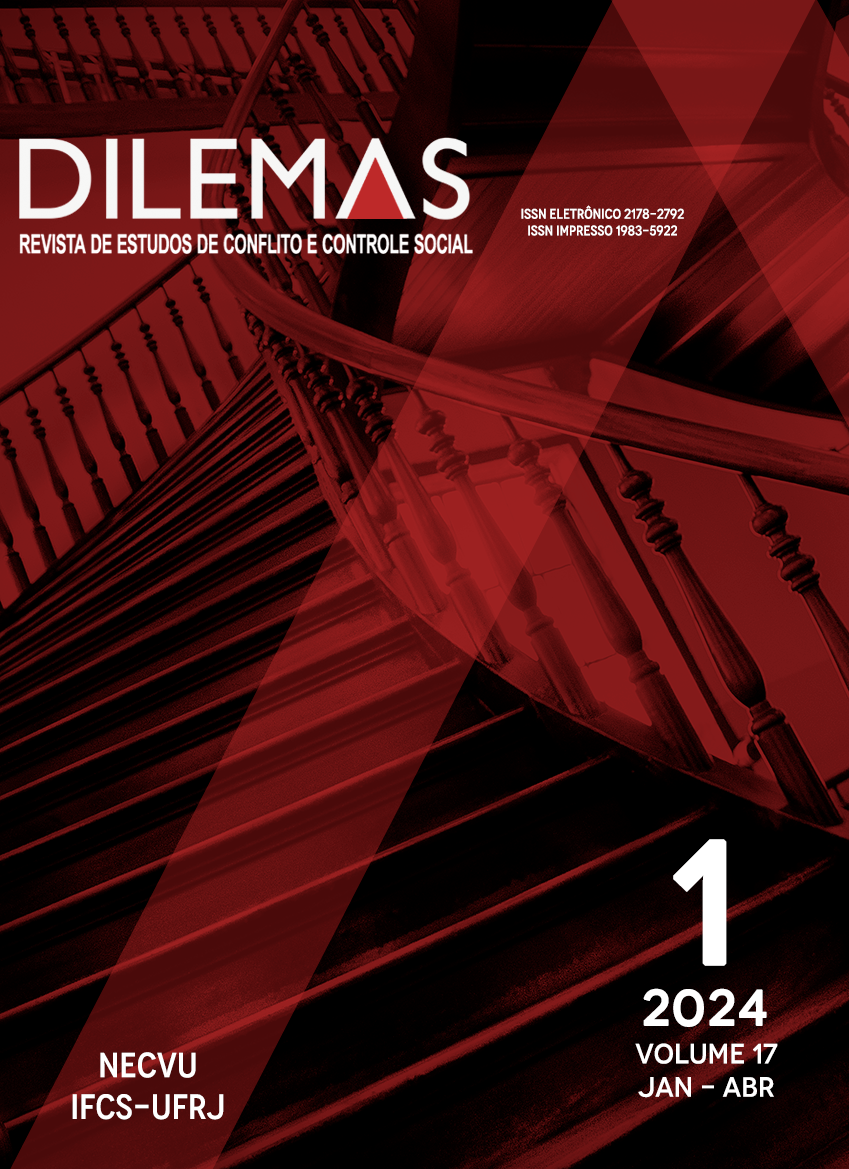Therapeutic justice: Meanings attributed by psychiatrists and judges to the law regarding marijuana
DOI:
https://doi.org/10.4322/dilemas.v17.n.1.56189Keywords:
Marijuana, Drug Law, Psychiatrists, judgesAbstract
This article aims to investigate the meanings attributed by psychiatrists and judges to the Brazilian legislation on marijuana. The text is based on qualitative research from in-depth individual interviews. A total of four psychiatrists and six judges who work in the cities of Petrolina, Pernambuco, and Juazeiro, Bahia, the largest cities in the region popularly known as Polígono da Maconha [Marijuana Polygon]. The analysis draws on Clifford Geertz’s interpretive anthropology. The conclusions point out that the practices of cultivation, consumption, and sale of marijuana, in relation to which these professionals need to position themselves, reflect the broad symbolic structures that are constitutive of their fields of action: law and psychiatry. In these structures, the legal regulation of marijuana is mostly based on prohibitionism, with a priori undetermined and deteriorating consequences for the national system of justice, police, and health. The magistrates were more critical of the current legislation on this matter and favorable to its reform.
Downloads
Downloads
Published
Issue
Section
License
Copyright (c) 2024 Ao submeter um texto, autores mantêm os direitos autorais e concedem à DILEMAS - Revista de Estudos de Conflito e Controle Social o direito de primeira publicação, com o trabalho simultaneamente licenciado sob a Licença Creative Commons tipo atribuição BY (CC-BY), que permite o compartilhamento do trabalho com reconhecimento da autoria e publicação inicial nesta revista. Os autores estão cientes, inclusive, que o trabalho circulará livre e gratuitamente, em versão digital.

This work is licensed under a Creative Commons Attribution 4.0 International License.
Upon submitting a text, the authors retain copyright and grant DILEMAS - Revista de Estudos de Conflito e Controle Social the right of first publication, with the work simultaneously licensed under the Creative Commons License type attribution BY (CC-BY), which permits sharing of the work with acknowledgment of authorship and initial publication in this journal.

